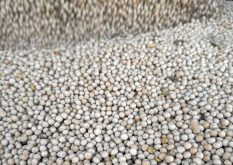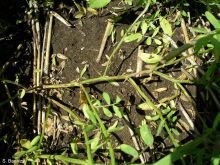Pulse shipments to Canada’s top customer suddenly got more expensive, at least temporarily.
Canada and other exporters have received a fumigation derogation from India allowing them to ship pulses without fumigating them with methyl bromide until Dec. 31, 2017.
That derogation came with a stipulation they would have to pay five times the regular inspection fees upon arrival in India, which amounts to about $15 per tonne.
A second derogation exempted exporters from paying the extra fees. France and the United States received an exemption through Dec. 31 while Canada’s only lasted until Sept. 30.
Read Also

Farmers asked to keep an eye out for space junk
Farmers and landowners east of Saskatoon are asked to watch for possible debris in their fields after the re-entry of a satellite in late September.
Canadian exporters were hoping India would extend the second derogation until Dec. 31, but as of Oct. 2 they hadn’t received any further notification from India.
India’s government offices were closed Oct. 2 for a national holiday, so it is possible an extension letter could arrive Oct. 3.
Gord Kurbis, director of market access and trade policy with Pulse Canada, said there are three possible outcomes:
• India could grant an extension. “Then it’s business as usual even though we might be back in the same soup in three months,” he said.
• India could deny the request for an extension, and shippers would have to pay the $15 per tonne inspection fee.
The worst-case scenario is India could institute a blanket phosphine fumigation requirement.
“That’s the one that would really limit trade,” said Kurbis.
“It can’t be done at scale on containers. It also can’t be done at temperatures under 5 C.
“Anyone who has lived in Canada for a winter can pretty easily tell just how limiting that would be.”
Contact sean.pratt@producer.com


















